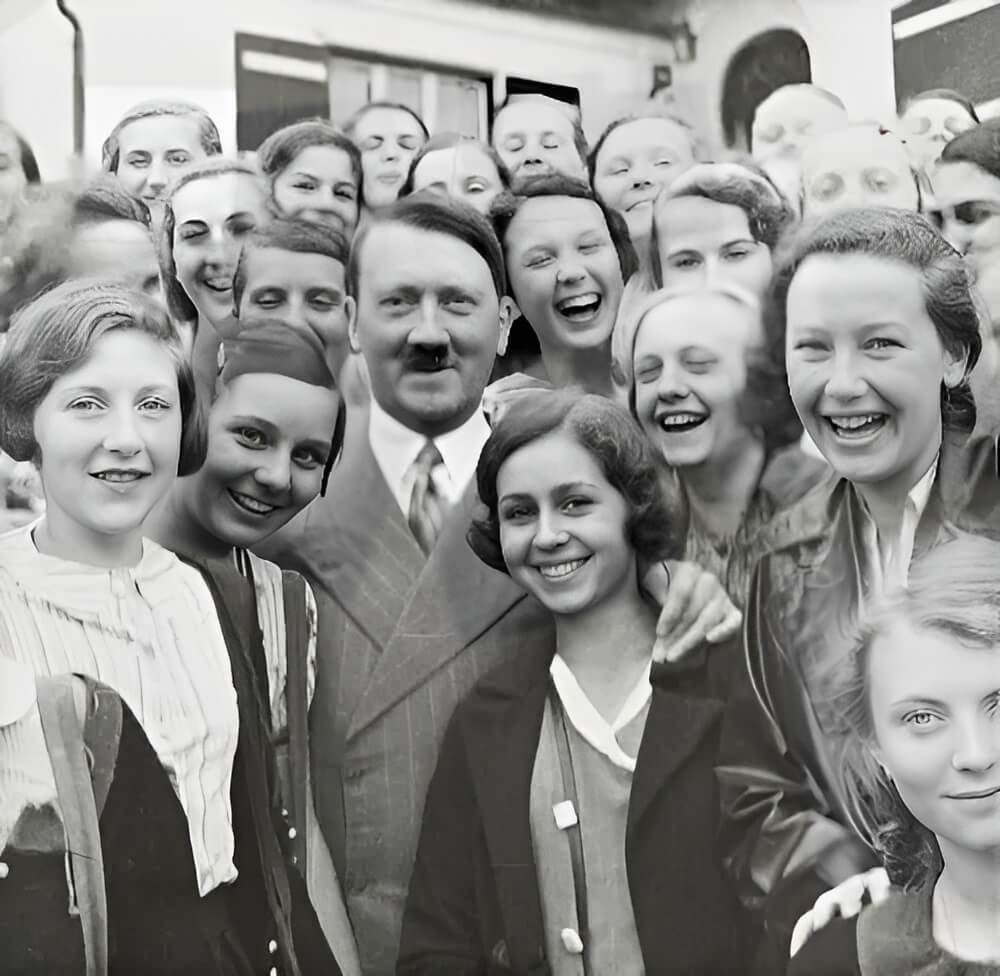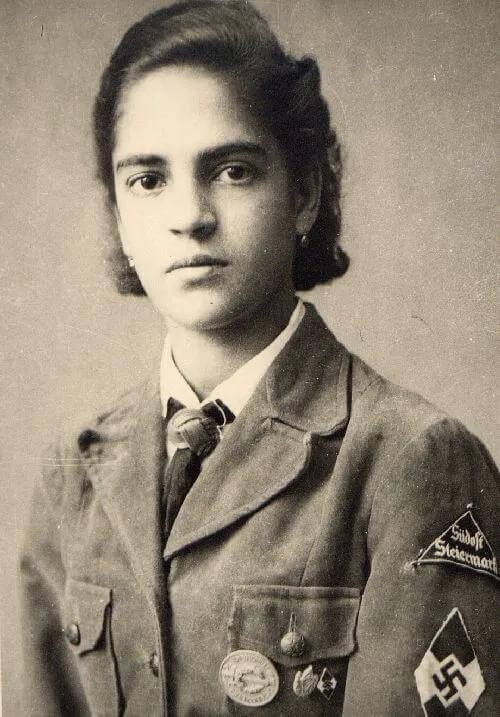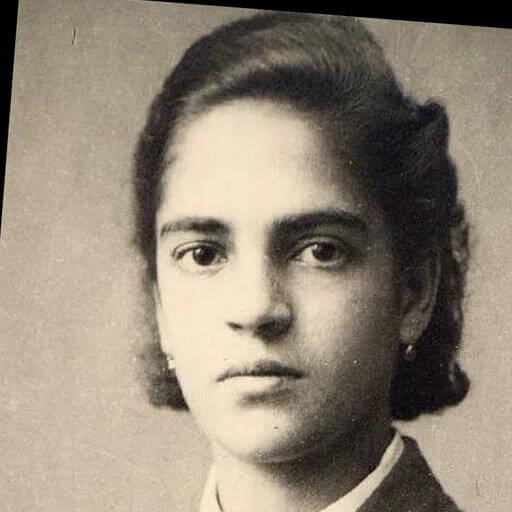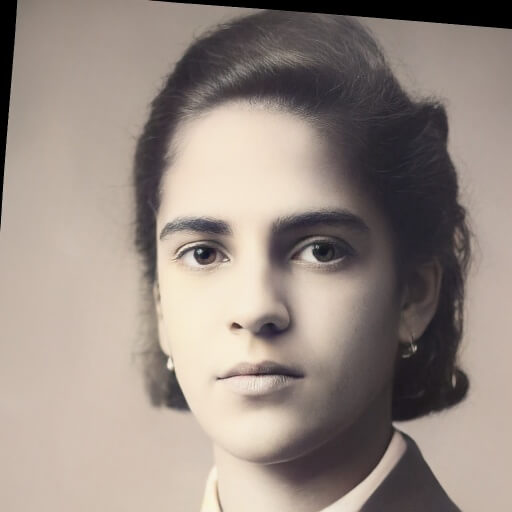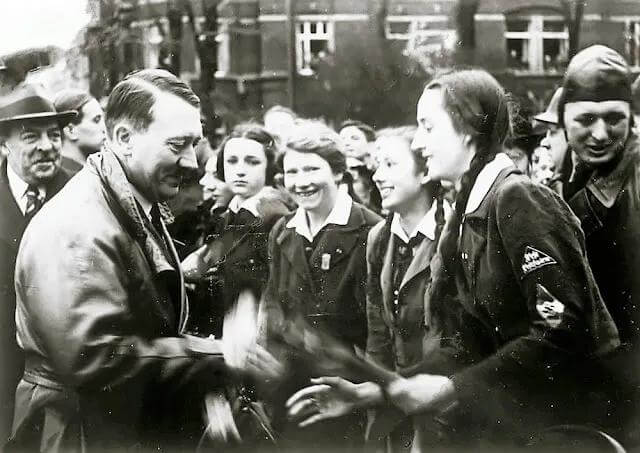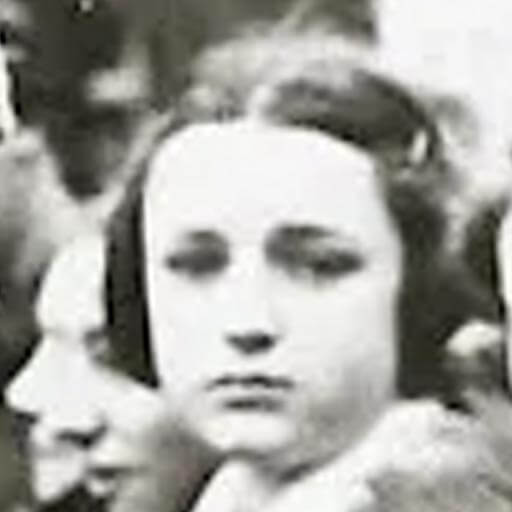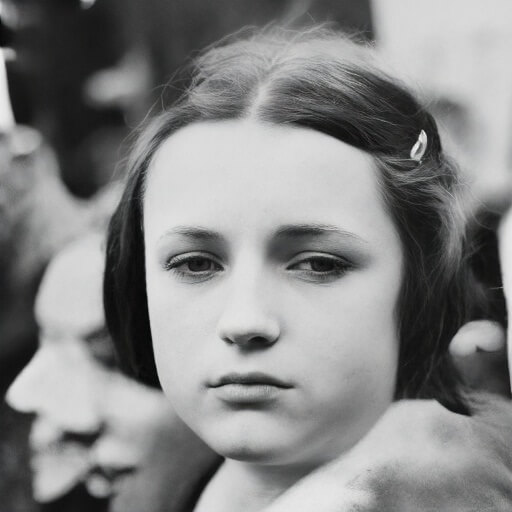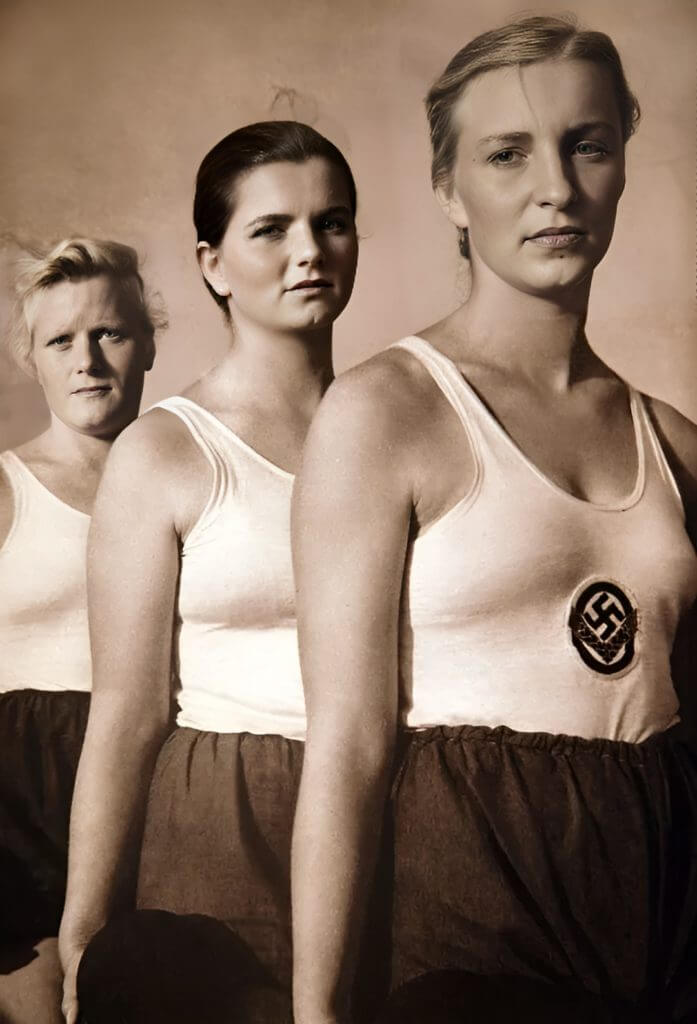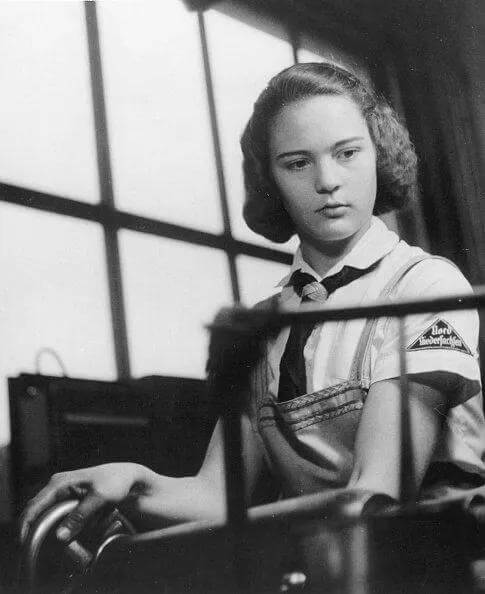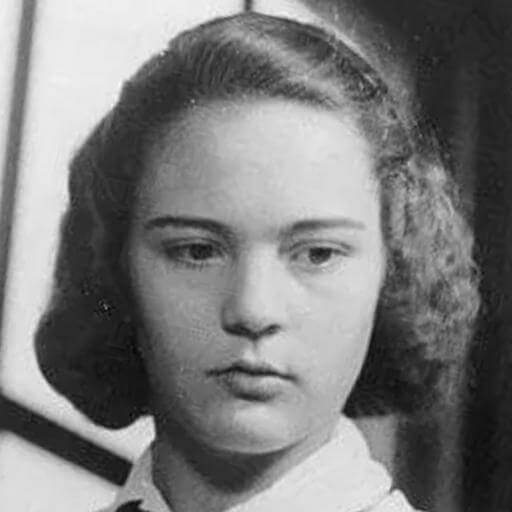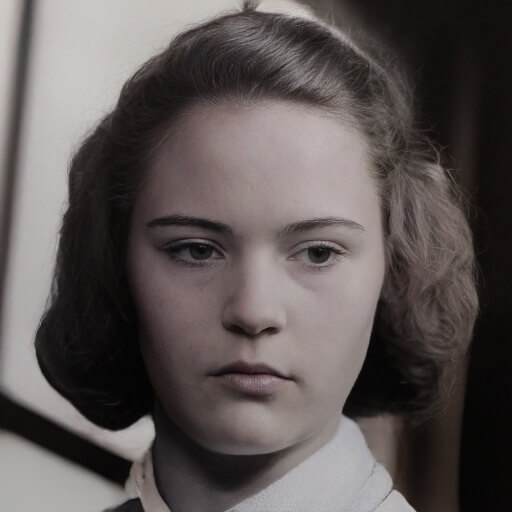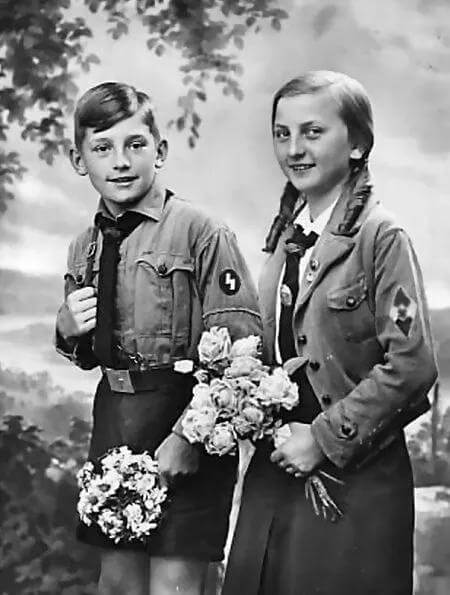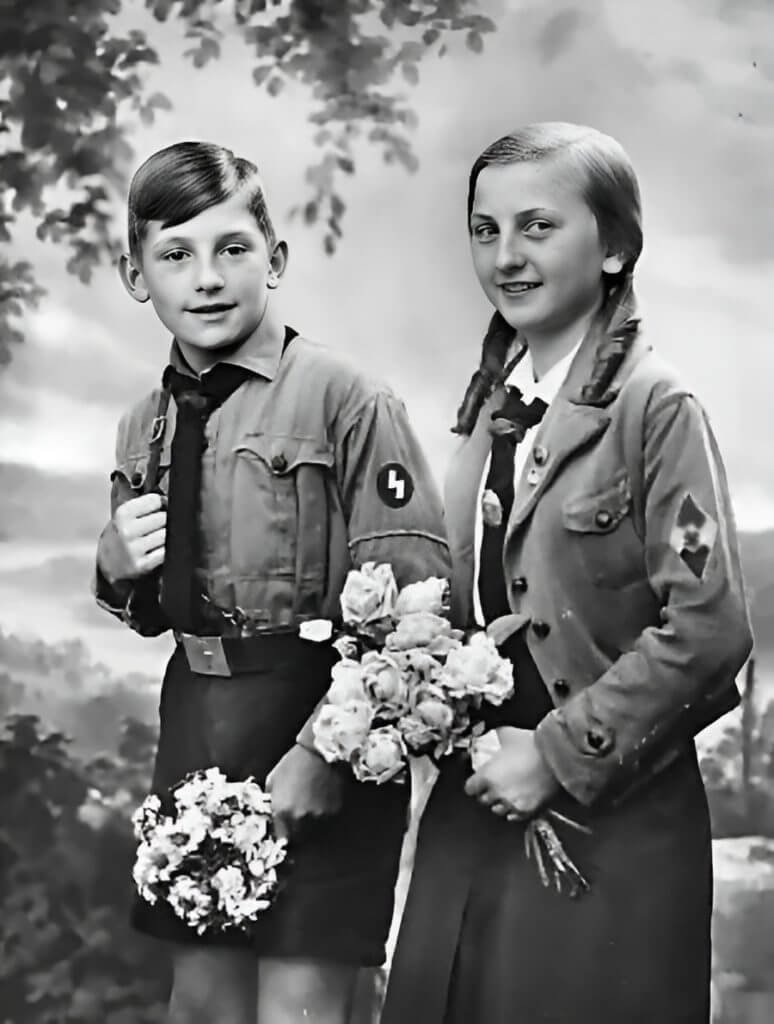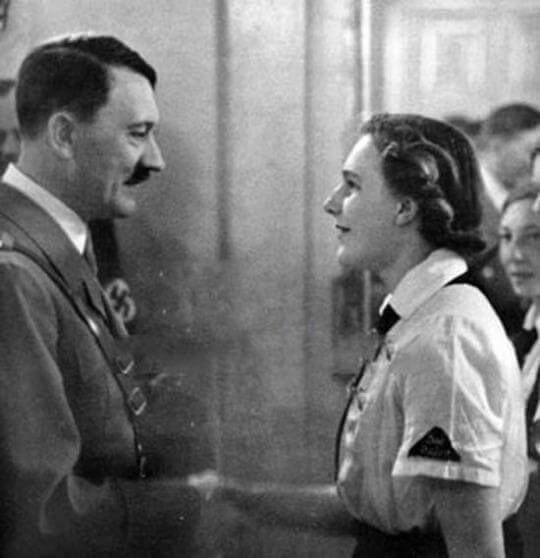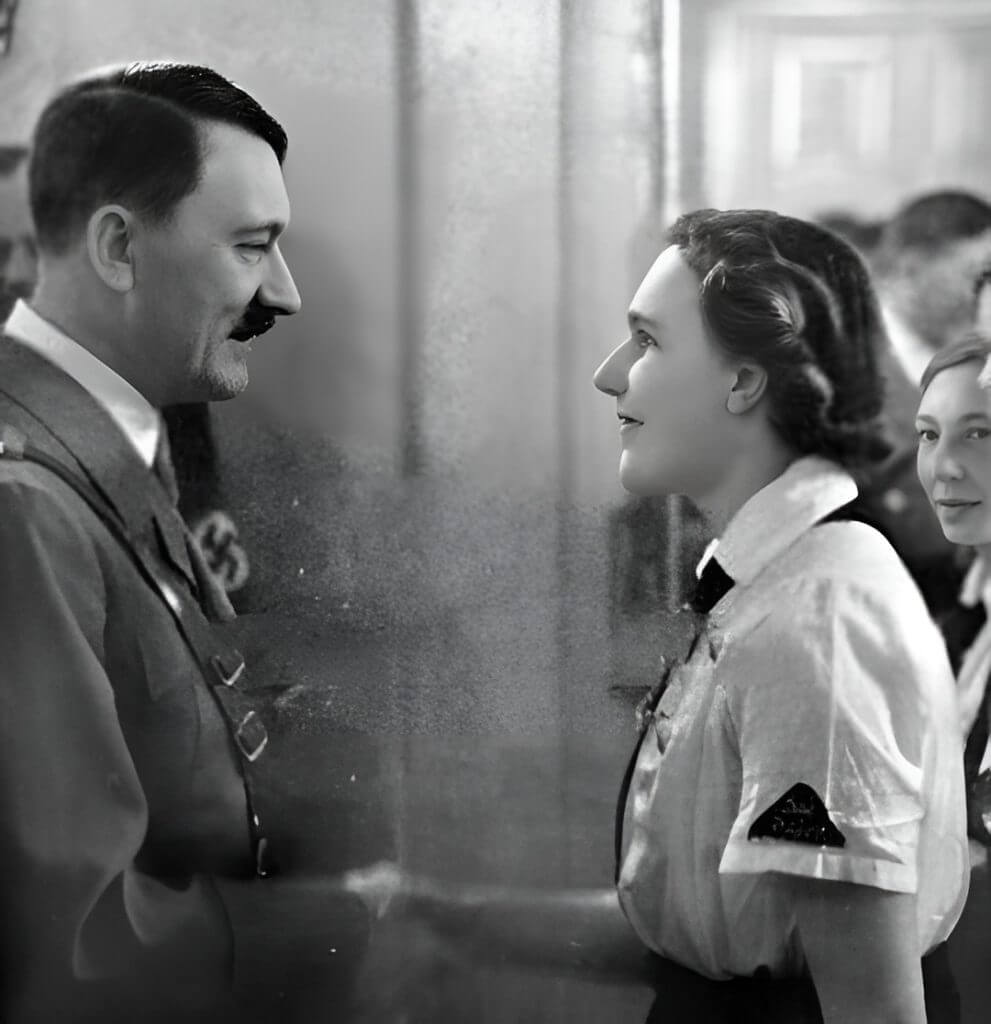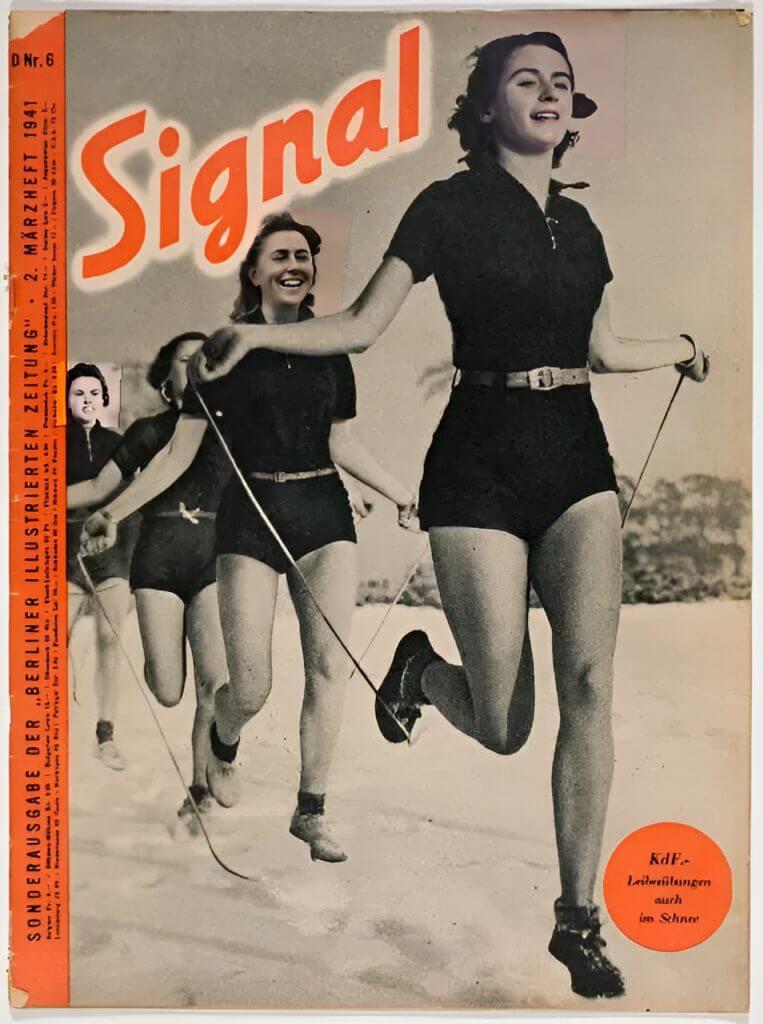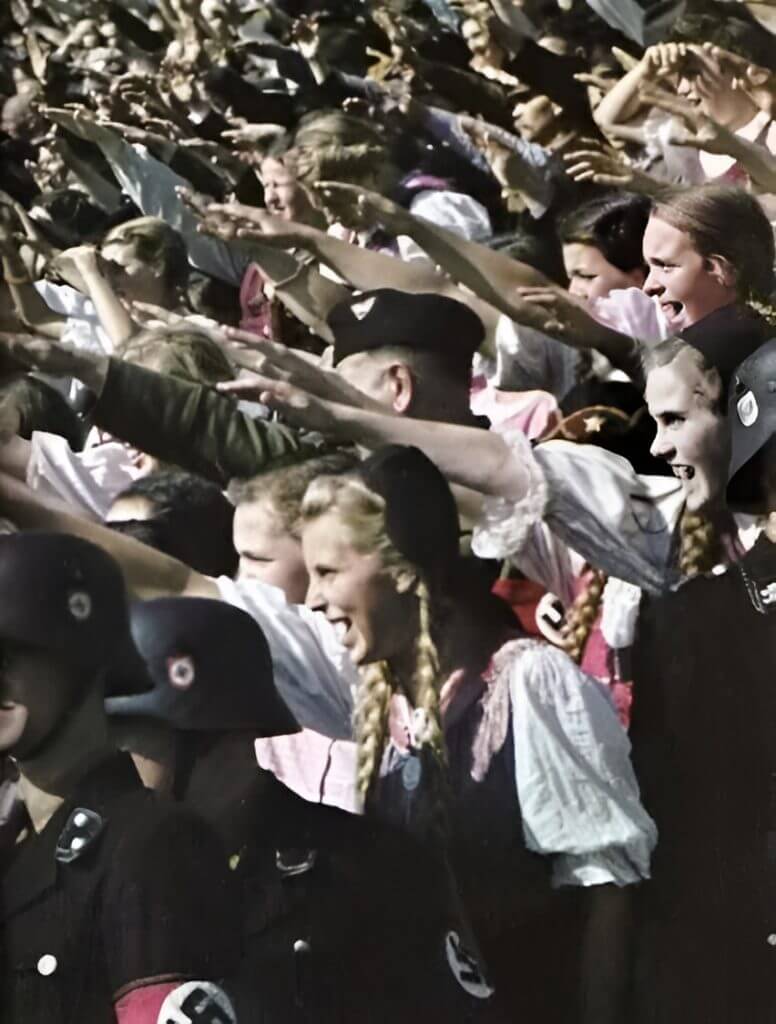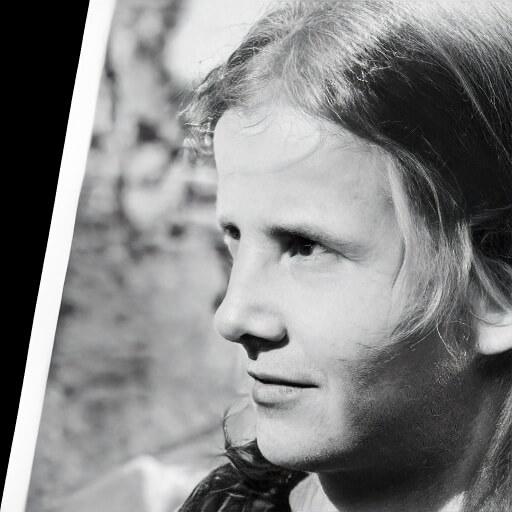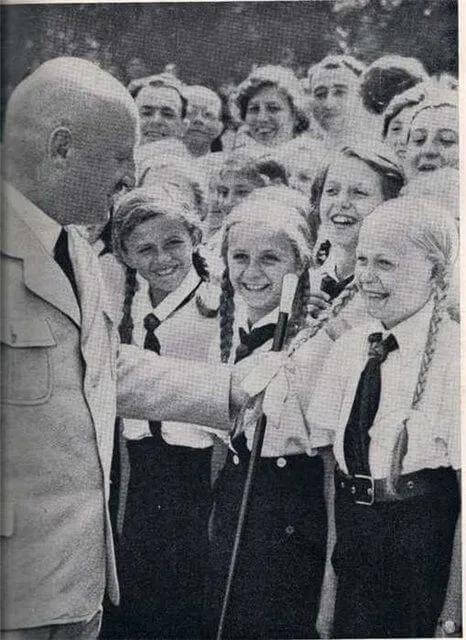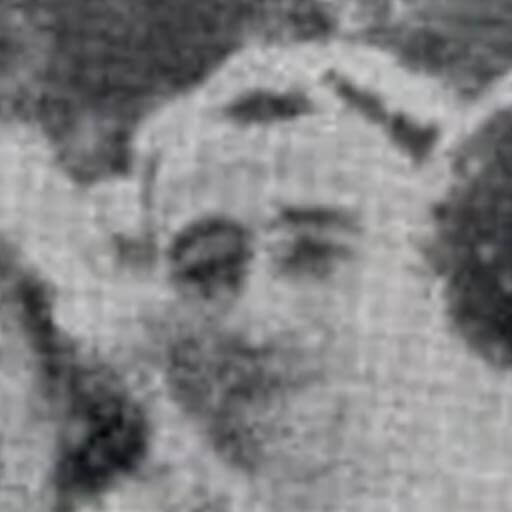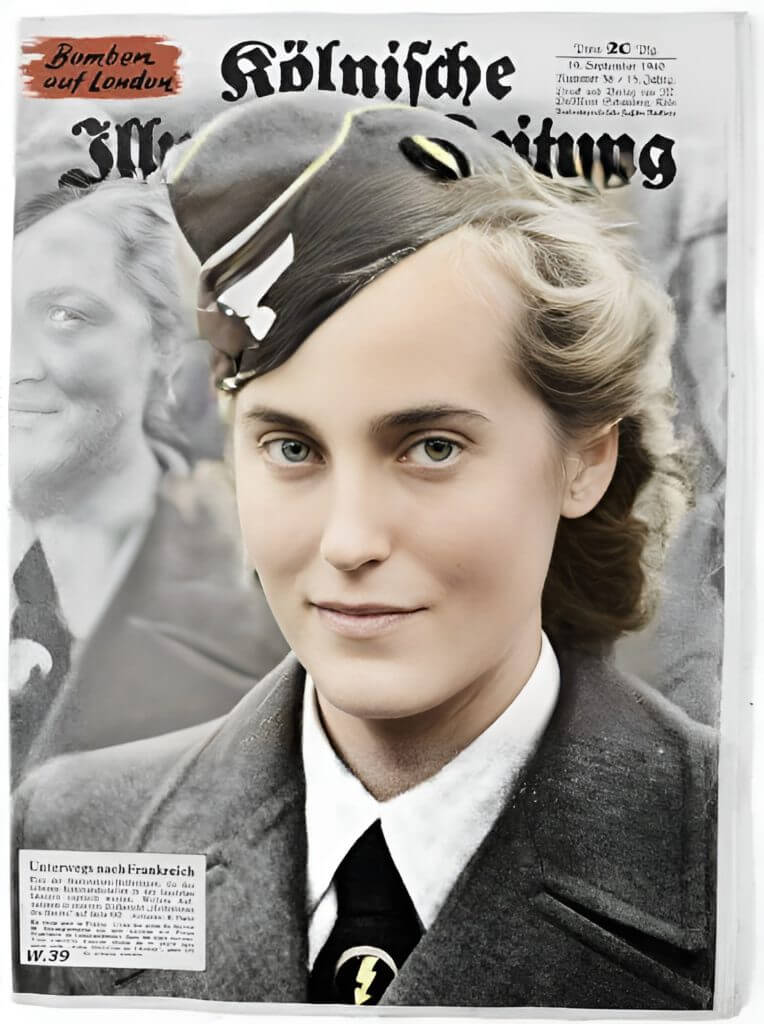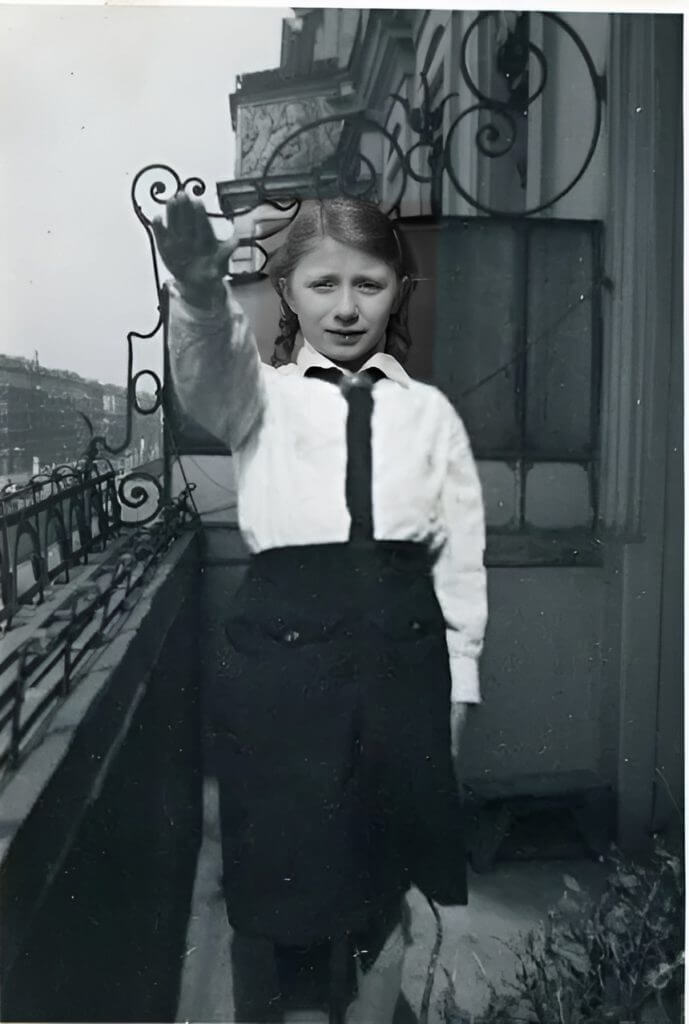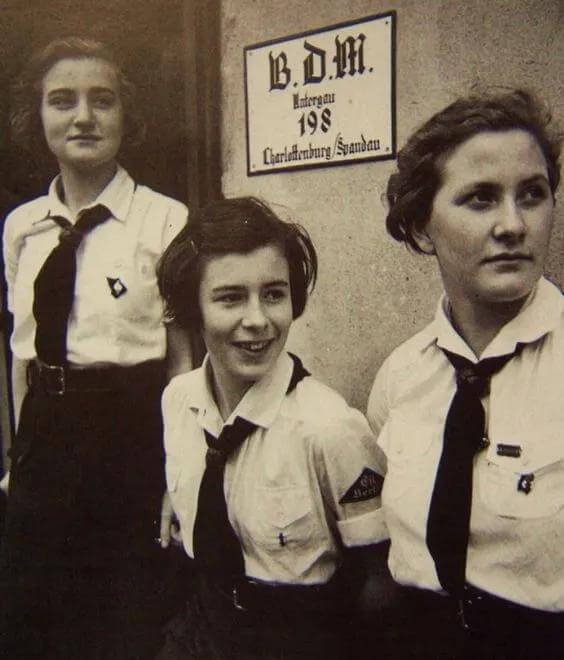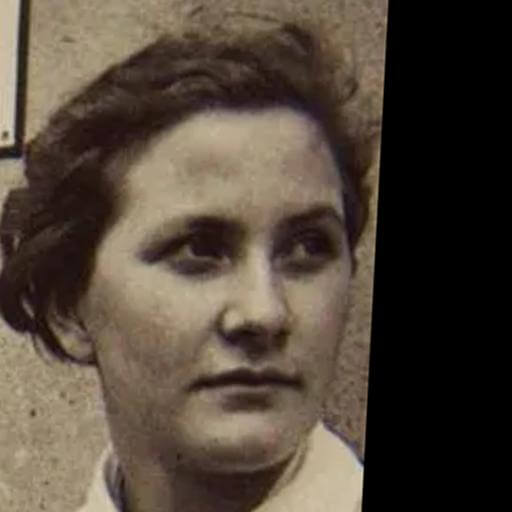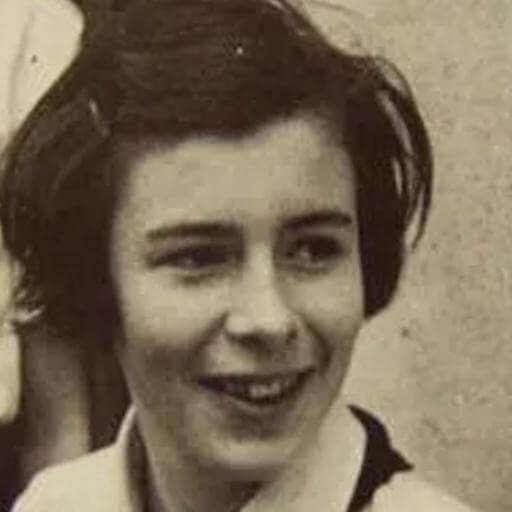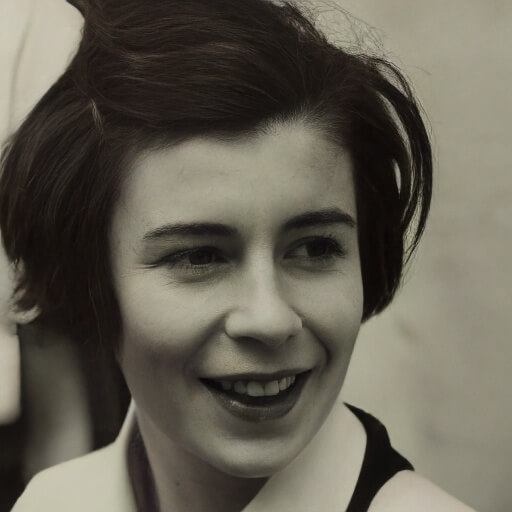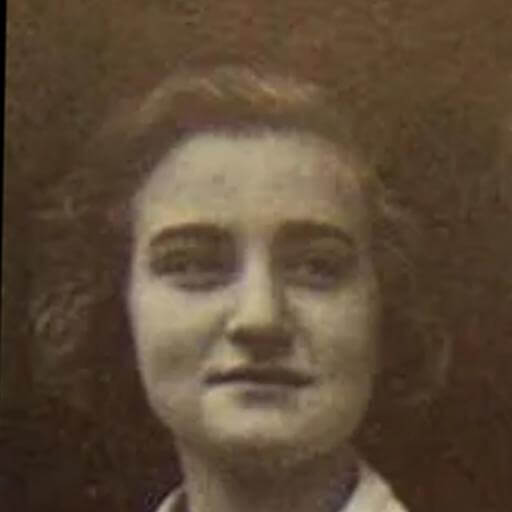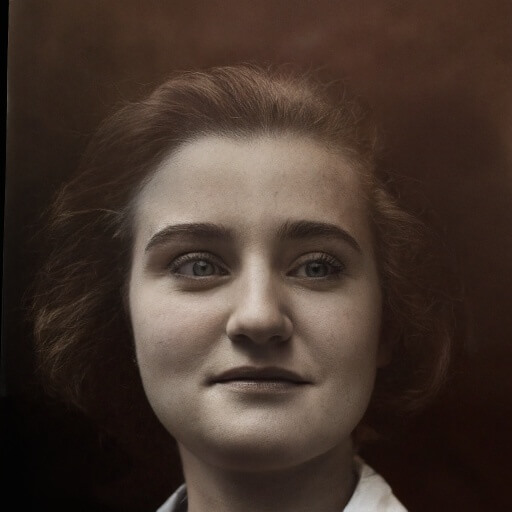The German League of Girls (Deutsche Jungmädelbund or DJ, for short) was a female youth organization established in 1930 in Nazi Germany. It was the female counterpart to the Hitler Youth for boys and was intended to promote the ideals of National Socialism among young German girls. The organization was established by the Nazi Party and was open to girls between the ages of 10 and 18. Membership was mandatory for all eligible girls, and those who did not join were often ostracized by their peers and faced penalties from the government. The organization was led by a group of female leaders, known as the “Jungmädelführerinnen,” who were responsible for the organization’s activities and propaganda.
The German League of Girls was designed to indoctrinate young girls with Nazi ideology and prepare them for their role in the Nazi state. Girls were taught to be loyal to the Nazi Party, to respect the authority of the government, and to serve their country. They were also encouraged to adopt traditional gender roles, with a focus on domestic duties and motherhood.
The organization’s activities included physical fitness training, outdoor activities, and educational programs. Girls were also encouraged to participate in cultural activities such as music, theater, and art. They were also taught about the importance of racial purity and the dangers of “racial enemies,” such as Jews, communists, and other minority groups.The German League of Girls was dissolved in 1945, at the end of World War II. However, its legacy lives on through the stories and memories of the women who were forced to participate in the organization during the Nazi regime.
It is important to note that the German League of Girls was part of the Nazi party’s propaganda machine, aimed at brainwashing young girls to become loyal members of the Nazi party and its ideologies which resulted in the persecution and murder of millions of people, particularly Jews and other minority groups.
In conclusion, the German League of Girls was a youth organization established by the Nazi party to promote its ideals among young German girls. Its activities and propaganda were aimed at indoctrinating girls with National Socialist ideology and preparing them for their role in the Nazi state. Its legacy serves as a reminder of the dangers of totalitarianism and the importance of resisting hateful ideologies.
